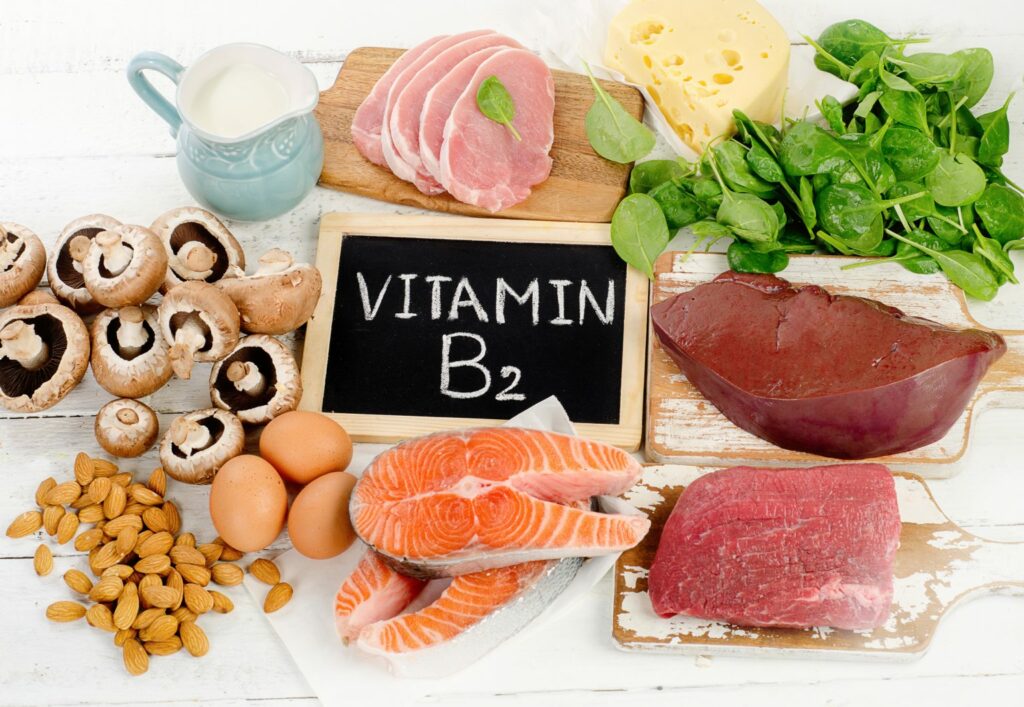Introduction
Vitamin B7, commonly known as biotin, is a water-soluble vitamin that belongs to the B-complex family. Biotin plays a crucial role in various bodily functions, ranging from supporting healthy skin, hair, and nails to aiding in energy metabolism. In this comprehensive guide, we will delve into the numerous benefits of biotin, explore its dietary sources, recommended dietary intake, and potential risks associated with deficiency.
Introduction to Vitamin B7 (Biotin)
Vitamin B7, or biotin, is a vital water-soluble vitamin that the body requires for its role in metabolism. It is also commonly referred to as “the beauty vitamin” due to its positive effects on skin, hair, and nails. Biotin is essential for a range of enzymatic reactions in the body and is primarily obtained from dietary sources.
Biotin’s Role in Energy Metabolism
One of the primary functions of biotin is its involvement in energy metabolism. Biotin acts as a coenzyme in various metabolic reactions, particularly in the breakdown of carbohydrates, fats, and proteins. It helps convert these macronutrients into energy that the body can utilize for its numerous functions. Understanding biotin’s role in energy production is essential for appreciating its overall importance in maintaining good health.
Biotin and Healthy Skin
Biotin is renowned for its beneficial effects on skin health. It plays a role in maintaining the health of your skin by promoting its elasticity and moisture retention. Biotin has also been associated with reducing skin conditions such as acne and fungal infections. We will explore the mechanisms through which biotin supports healthy, radiant skin.
Biotin and Hair Health
Biotin’s positive impact on hair health has made it a popular supplement for individuals looking to promote hair growth and prevent hair loss. We will discuss the relationship between biotin and hair health, including its role in strengthening hair strands and improving hair texture. Additionally, we’ll address the potential benefits for individuals experiencing hair thinning or hair loss.
Biotin and Nail Health
Biotin’s role in maintaining healthy nails is equally significant. This vitamin contributes to the strength and thickness of nails, helping to prevent common issues like brittle and fragile nails. We’ll examine the science behind biotin’s effects on nail health and discuss how it can be used as a natural solution for promoting strong, beautiful nails.
Biotin and Pregnancy
Pregnancy is a crucial period where adequate nutrient intake is vital for both the mother and the developing baby. Biotin plays a role in embryonic development and fetal growth. We’ll explore the significance of biotin during pregnancy, including its potential benefits for preventing birth defects and ensuring a healthy pregnancy.
Sources of Biotin
Obtaining an adequate amount of biotin is essential for reaping its benefits. Dietary sources of biotin include a variety of foods, both plant-based and animal-based. We will provide a comprehensive list of biotin-rich foods, including meat, fish, eggs, nuts, seeds, and vegetables. Understanding these sources can help individuals make informed choices to meet their biotin needs.
Recommended Dietary Intake and Supplements
Understanding the recommended daily intake of biotin is crucial for maintaining optimal health. We’ll explore the dietary reference intake (DRI) values for different age groups and discuss the potential benefits of biotin supplements. Additionally, we’ll provide guidance on choosing the right biotin supplement, dosage recommendations, and considerations for specific populations.
Biotin Deficiency Symptoms and Risks
Biotin deficiency is relatively rare but can lead to various health issues. We will outline the common signs of deficiency, including thinning hair, brittle nails, and skin rashes. Additionally, we’ll discuss the specific groups at higher risk of developing biotin deficiency, such as pregnant women and individuals with certain medical conditions, helping you understand the importance of maintaining optimal biotin levels.
Biotin Supplementation: Pros and Cons
While biotin supplements can be a valuable tool in addressing deficiency and promoting overall health, they are not without potential drawbacks. We’ll weigh the pros and cons of biotin supplementation, discussing factors like effectiveness, safety, and potential interactions with other medications. Understanding the nuances of biotin supplementation can help individuals make informed choices regarding their health.
Prevention and Treatment of Biotin Deficiency
Preventing and treating biotin deficiency are essential steps to safeguard your health. We’ll discuss strategies for prevention, including dietary choices and supplementation when necessary. For those already experiencing deficiency, we’ll explore the various treatment options, from oral biotin supplements to the expected outcomes of treatment.
Conclusion
Vitamin B7, or biotin, is a remarkable nutrient with a diverse range of benefits, from supporting energy metabolism to promoting healthy skin, hair, and nails. Recognizing the signs of deficiency, understanding dietary sources, and considering supplementation when necessary are essential steps in maintaining optimal biotin levels. By following the insights provided in this comprehensive guide, individuals can take proactive measures to harness the numerous benefits of biotin for their health and well-being, ultimately leading to improved overall quality of life.

